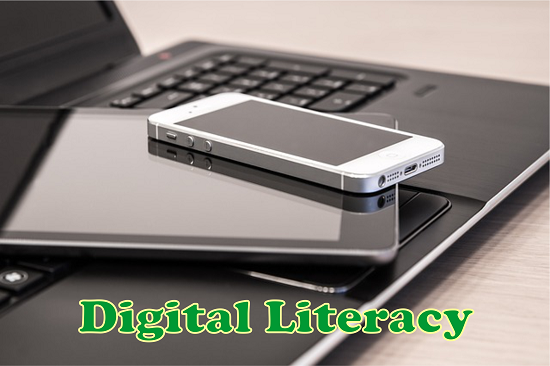
Digital Literacy: Empowering Communities for the Future
Digital literacy is essential in today’s technology-driven world, where the ability to navigate digital platforms determines access to information, employment, and social connections. Digital literacy ensures that individuals possess the skills required to use computers, smartphones, and the internet effectively. Without digital literacy, communities risk being left behind as technology becomes increasingly integral to all aspects of life. In this article, we explore the importance of digital literacy, the role it plays in education and the economy, and how initiatives are helping to bridge the digital divide.
The Importance of Digital Literacy in Modern Society
Digital literacy is crucial for individuals to thrive in modern society. In a world where technology underpins communication, education, and employment, digital literacy enables people to access information, complete tasks efficiently, and participate fully in their communities. For those without these skills, daily activities can become overwhelming and inaccessible, which can limit both personal growth and economic opportunity. Digital literacy programs provide a pathway to learning these essential skills, ensuring that no one is excluded from the benefits of a connected world.
Digital Literacy in Education
Digital literacy is also transforming the educational landscape. Digitally literate students can access learning materials, engage in online research, and participate in virtual classrooms. Digital literacy also enables teachers to incorporate technology into their teaching methods, making lessons more interactive and accessible. Schools that promote digital literacy empower students to succeed academically and prepare them for the demands of a digital economy. Educational institutions must prioritize digital literacy to equip future generations with the skills they need for success.
Enhancing Employment Opportunities through Digital Literacy
Digital literacy plays a significant role in employment opportunities. In today’s job market, almost every industry requires some level of digital proficiency, whether it’s using office software, managing social media accounts, or handling data analysis. Without digital literacy, job seekers may find it challenging to secure employment or advance their careers. Many organizations and NGOs offer digital literacy programs to address this gap, helping individuals develop the skills needed to compete in the workforce. Digital literacy empowers job seekers by enhancing their employability and enabling them to pursue career opportunities.
Digital Literacy and Economic Growth
Digital literacy is not just about individual benefits; it also contributes to economic growth. When people possess digital skills, they are better positioned to engage in the digital economy. This can result in more innovative businesses, improved productivity, and a stronger workforce. For communities, increased digital literacy can attract investment and support local development. Countries that promote digital literacy on a national level see positive effects on their economies as they become more competitive in global markets. Thus, digital literacy is a key driver of both personal and collective economic success.
Bridging the Digital Divide through Digital Literacy Programs
Digital literacy programs are essential for bridging the digital divide. In many communities, especially in rural or underserved areas, access to technology and digital skills training is limited. This lack of access can widen the gap between those who are digitally literate and those who are not. Digital literacy programs address this issue by providing access to technology, internet services, and training resources. These programs aim to reach marginalised groups, ensuring that everyone has the opportunity to develop the skills needed to participate in the digital world. By doing so, digital literacy programs promote social and economic inclusion.
The Role of NGOs in Promoting Digital Literacy
Non-governmental organizations (NGOs) play a crucial role in promoting digital literacy. NGOs often collaborate with schools, businesses, and governments to offer digital literacy training to vulnerable populations. Through workshops, training sessions, and community outreach, NGOs provide individuals with the tools they need to improve their digital skills. These initiatives are particularly important in developing countries, where access to technology and digital education can be scarce. By partnering with local communities, NGOs help bridge the gap and ensure that everyone can benefit from digital literacy.
Challenges in Digital Literacy Programs
Digital literacy programs face several challenges, including a lack of resources, limited access to technology, and varying levels of prior knowledge among participants. For these programs to be successful, they need to be tailored to the specific needs of the community. This includes providing access to computers, reliable internet connections, and instructors who are knowledgeable and patient. Additionally, digital literacy programs must be flexible enough to accommodate learners of all skill levels, from beginners to advanced users. Overcoming these challenges is key to ensuring that digital literacy initiatives are effective and inclusive.
The Future of Digital Literacy
As technology continues to evolve, so too must digital literacy programs. Emerging technologies, such as artificial intelligence, machine learning, and data analytics, are becoming increasingly important in the digital economy. To stay competitive, digital literacy programs must incorporate training in these areas, ensuring that participants are equipped with the skills of tomorrow. Additionally, ongoing support and training will be necessary as new technologies emerge. The future of digital literacy is one of continuous learning and adaptation, where individuals are empowered to navigate an ever-changing technological landscape.
The Impact of Digital Literacy
Digital literacy is a cornerstone of modern life, providing individuals with the skills they need to succeed in a digital world. By promoting digital literacy, we can empower communities, improve employment opportunities, and foster economic growth. Initiatives such as digital literacy programs are crucial in bridging the digital divide and ensuring that no one is left behind. Since the future is digital, as technology continues to evolve, the importance of digital literacy will only increase. It is essential to invest in digital literacy programs that provide ongoing education and support, helping individuals and communities thrive in the digital age.
[…] Digital Literacy and Coding […]
[…] Building Digital Literacy […]
[…] Basic Digital Literacy […]